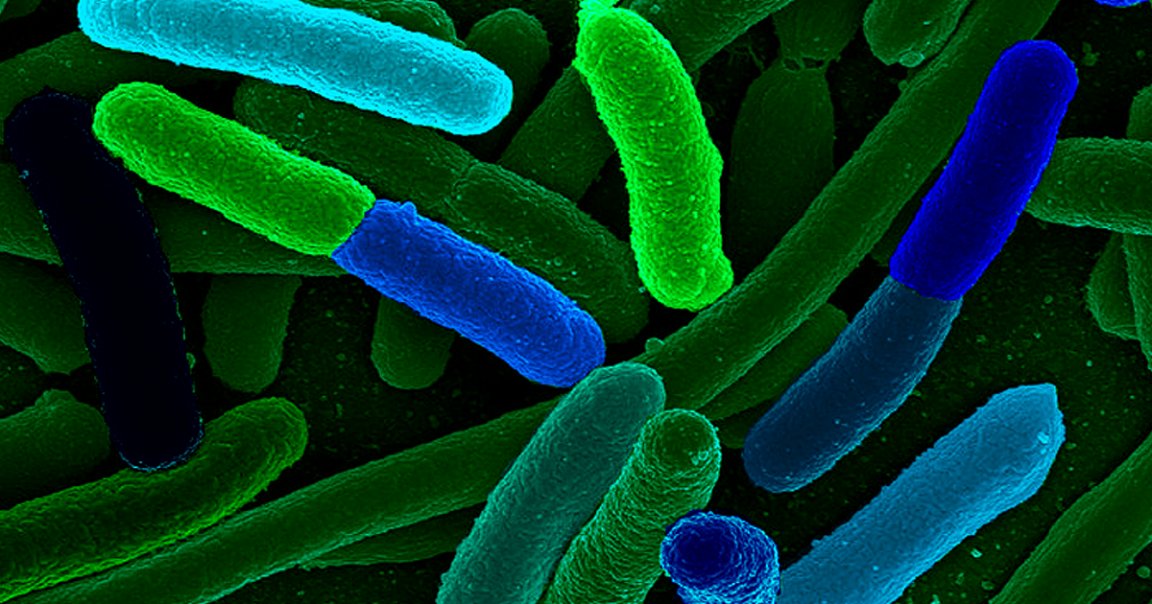
We Can Rebuild It
For the first time, scientists have created life with genetic code that was developed from scratch.
A University of Cambridge team created living, reproducing E. coli bacteria with DNA coded entirely by humans, according to The New York Times. The new bacteria look a little wonky, but they behave more or less the same as natural E. coli. Learning to rebuild genomes from scratch could teach scientists how DNA originally came to be — and how we can manipulate it to create new life.
Piece By Piece
Before this study, the longest stretch of synthetically-coded DNA was about a million segments long. This new bacterial genome is four times that length, according to research published Wednesday in the journal Nature.
The Cambridge scientists, led by molecular biologist Jason Chin, swapped out the bacteria’s natural DNA piece by piece until they had replaced the original genome in its entirety, the NYT reports. Once the new DNA was in place, the bacteria grew into an unusual shape and followed a slowed-down reproductive cycle, but otherwise carried on as normal.
Factory Farm
Down the road, Chin hopes to further streamline the process, potentially giving rise to cheaply-manufactured artificial life. Scientists like Harvard biologist Finn Stirling envision a future where this technology makes its way to other species in the lab.
“In theory, you could recode anything,” Stirling told The NYT.
READ MORE: Scientists Created Bacteria With a Synthetic Genome. Is This Artificial Life? [The New York Times]
More on genetics: Microbiologists Are Suddenly Really, Really Worried About Synthetic Smallpox